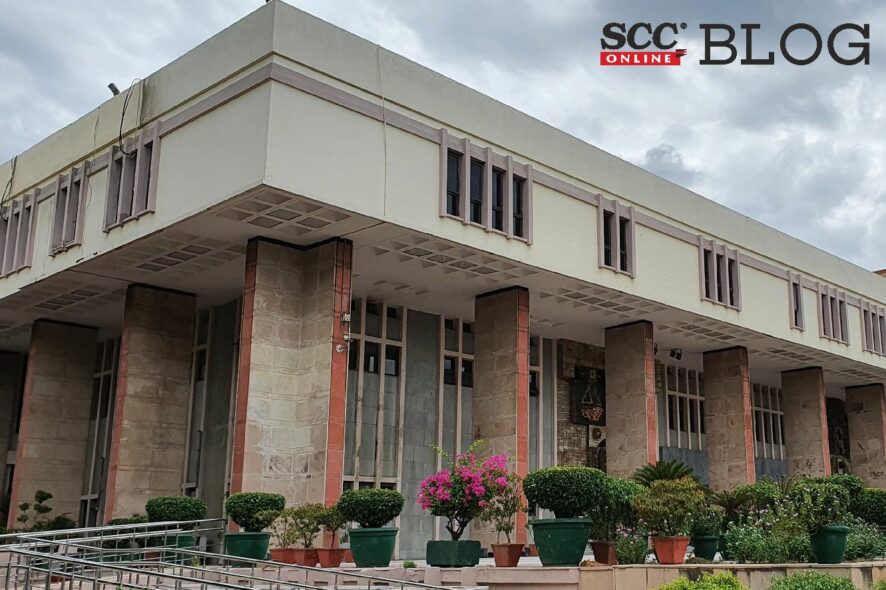Delhi High Court: Amit Bansal, J., observed that the taglines of ‘Red Bull’ and ‘Sting’ are descriptive and laudatory in nature.
Interim injunction against the defendants, restraining the defendants from using the tagline “STIMULATES MIND ENERGIZES BODY”, was sought as it was deceptively similar to the plaintiff’s registered trademark/tagline “VITALIZES BODY AND MIND”.
Analysis, Law and Decision
Whether a case of passing off has been made out by the plaintiff against the defendants?
The basic premise for passing off is deception caused on account of the defendant attempting to show its goods as that of the plaintiff.
The Bench referred to the Supreme Court decision in Satyam Infoway Ltd. v. Siffynet Solutions (P) Ltd., (2004) 6 SCC 145.
As per the observation in the above decision, the common law remedy of passing off restrains a defendant from riding on the reputation and goodwill earned by a plaintiff, being the prior user/owner of a distinctive mark. The purpose of an action of passing off is to prevent confusion and deception amongst consumers and the public at large.
On comparison of the two products, it was observed that there was no similarity between the two products and the layout of the two cans was totally different.
Further, the Court noted that,
(i) the brand names of both the products, “Red Bull” and “STING” are prominently displayed on the cans;
(ii) the color scheme of the two products is completely different;
(iii) the fonts used in the two products are also different;
(iv) the taglines used, which are subject matter of the present dispute, are used in very small fonts on both the cans in comparison to “Red Bull” and “STING”; and,
(v) the colour in which the taglines are written and the backgrounds in which the taglines appear are also completely different.
Hence, in view of the above Court stated that, no confusion or deception would be caused to the customers of both the parties in respect of their products. Therefore, no case of passing off was made out.
Claim of Infringement
Plaintiff claimed that it had been using the tagline for a long period of time and has spent enormous amounts on its promotion. Registration for the same has been granted to the plaintiff not only in India but in various other countries. The defendants adopted the plaintiff’s tagline in a malafide manner so as to communicate the same idea.
High Court stated that undoubtedly, the tagline of the plaintiff, has been granted registration in India in 2010, with effect from the date of the Trademark Application. However, the rights granted upon registration under Section 28 of the Trade Marks Act are not absolute, being subject to other provisions of the Trade arks Act and upon the registration of the trademark being valid.
In Court’s opinion, the tagline of the plaintiff, which is a phrase or an expression, has a direct reference to the quality, intended purpose, values and other characteristics of the plaintiff’s products.
In Court’s prima facie view, the tagline used by the plaintiff was of descriptive/laudatory character, which ought not to have been granted registration in view of Section 9(1)(b) of the Trade Marks Act.
The use of the impugned tagline by the defendants was also in a descriptive/laudatory manner and not as a trademark.
The Bench added that, the tagline used by the defendants, “STIMULATES MIND. ENERGIZES BODY.” is a phrase or an expression comprising four words of the English language that aims to describe the features and quality of its drink. In comparison to the brand name of the defendants’ product, “STING”, which is displayed prominently on the cans, the impugned tagline only appears in a small font.
Hence, the contention of the plaintiff that the defendants were using the impugned mark in a manner that was likely to be taken as being used a trademark was not accepted.
Therefore, no infringement was committed in terms of Section 29 of the Trade Marks Act.
The tagline of the plaintiff and the impugned tagline of the defendants are both descriptive in nature and therefore, the plaintiff is not entitled to grant of interim injunction against the defendants.
Whether or not at this stage, an interim injunction should be granted in favour of the plaintiff, restraining the defendants from using the impugned mark?
With regard to the above, Court referred to the observations made by the Supreme Court in Wander Ltd. v. Antox India (P) Ltd., 1990 Supp SCC 727.
Noting that the defendants have been selling their product for a period of five years with the stated impugned mark, the balance of convenience would be against the grant of interim injunction.
Lastly, the Court held that, the plaintiff failed to establish a prima facie case in its favour for grant of interim injunction.
Hence, the present application under Order XXXIX Rule 1 and 2 of the CPC was dismissed.[Red Bull AG v. Pepsico India Holdings (P) Ltd., 2022 SCC OnLine Del 969, decided on 6-4-2022]
Advocates before the Court:
For the Plaintiff:
Mr. Anirudh Bakhru with Mr. Abhishek Singh, Mr. Naqeeb Nawab, Mr. Himanshu Deora, Mr.Raghav Vig & Mr. Yashwardhan Singh, Advocates.
For the Defendants:
Mr. Sudhir Chandra, Senior Advocate with Mr. Dheeraj Nair and Ms. Shruti Dass, Advocates.







